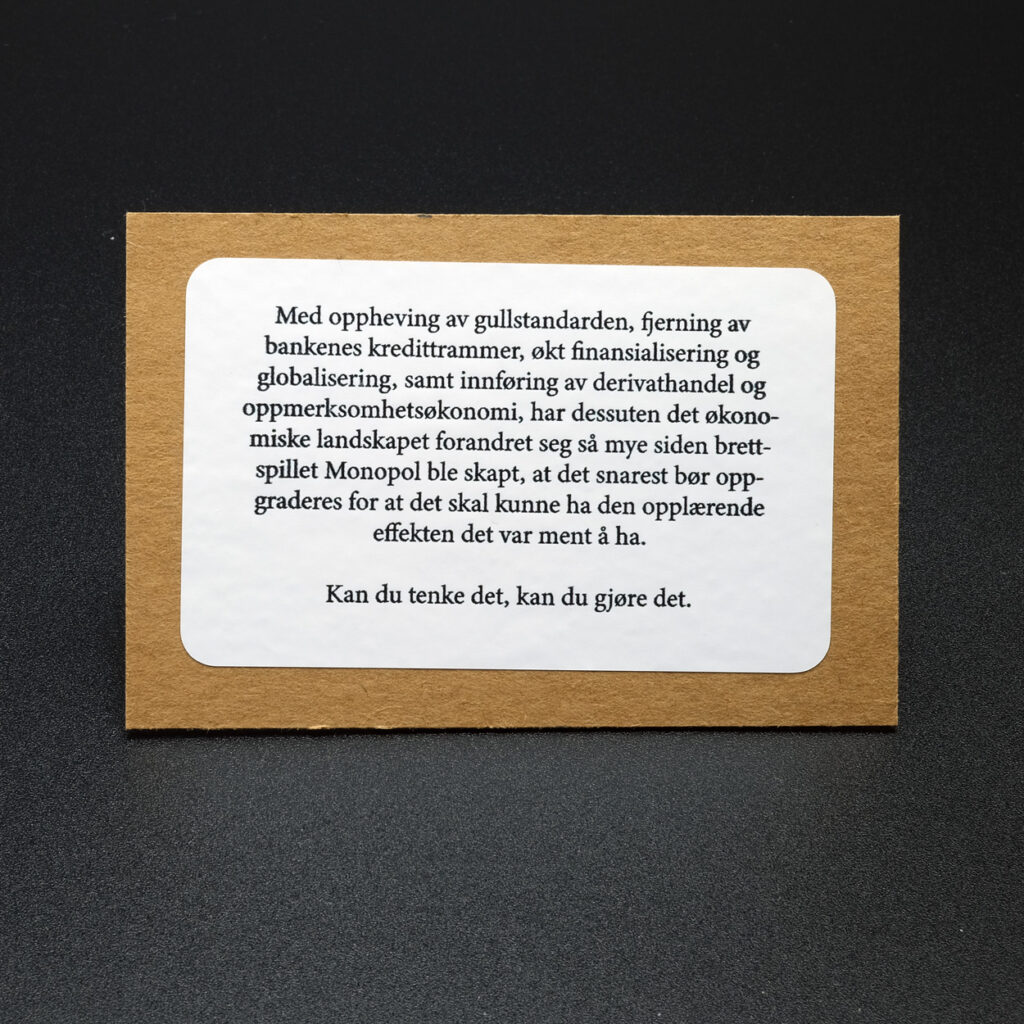With the abolition of the gold standard, the removal of the banks’ credit limits, increased financialization and globalization, as well as the introduction of derivatives trading and the attention economy, the economic landscape has changed so much since the board game Monopoly was created that it should be upgraded as soon as possible. This card cannot be sold, but it can be kept until you need it.

Introduction
Monopoly is the best-selling board game in the world. The aim of the game is to become the richest player, and force the other players into bankruptcy by buying, selling and renting plots of land or streets with houses and hotels.
The precursor to the game was called The Landlord’s Game and was developed by Elizabeth Magie in 1902–03. Her objective was that the game should be a «practical demonstration of the present system of land grabbing with all its usual outcomes and consequences». She based the game on the economic principles of Georgism, a system proposed by Henry George, with the aim of demonstrating how lettings make property owners richer and tenants poorer. Knowing that some people might find it difficult to understand why this happened and what can be done about it, Magie thought that if Georgist ideas were put into the concrete form of a game, they might be easier to understand. Magie also hoped that when played by children, the game would evoke their natural sense of justice, and that they would carry the lessons of the game with them into adulthood.

Magie patented the game in 1904, but in 1935 the unemployed Charles B. Darrow copied the game by hand, replacing the properties in the game with street names from Atlantic City. He pitched the game as his own to Parker Brothers (now Hasbro) who bought the rights and began mass production. The game has since been spread to over 80 countries.
Although the game was originally intended as a critique of the inequality-generating mechanisms of capitalism, most people who play it find that it brings out their greediest and most ruthless sides. Those who win the game feel, just as in reality, that this is due to their cleverness and that the victory therefore is well-deserved. On this basis, it seems that it’s time for an upgrade so that it can have the educational effect it was intended to have. With the abolition of the gold standard, the removal of the banks’ credit limits, increased financialization and globalization, as well as the introduction of derivatives trading and the surveillance capitalism, the economic landscape has also changed so much since the game was created that a major clean-up is required.
Instructions
Gather some friends and play Monopoly as usual, but sneak the card imperceptibly into the deck of chance cards beforehand. We also encourage you to prepare new chance cards together, and that these take into account the current economic climate, and which, in the spirit of Elizabeth Magie, stimulate critical thinking.
If you can think it, you can do it!
The text on the card
[Our suggestion to text on The chance card: Someone has made a fortune at your expense and still believes that it is well deserved. End the game by e.g. to overturn the entire game table, find a pen and paper and draw up new rules in collaboration with your fellow players. This card cannot be sold, but it can be kept until you need it.]
